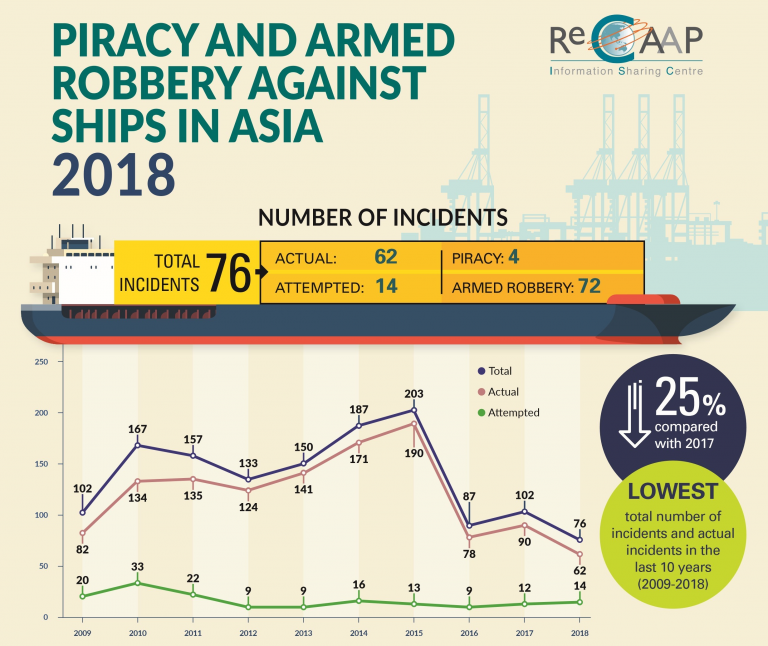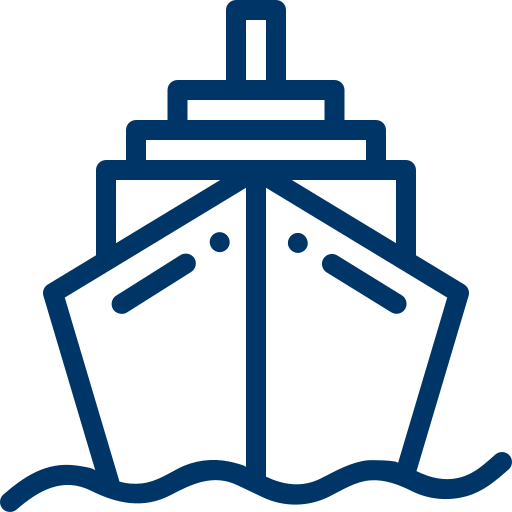by Capt. Gurjeet Warya | VP Business Development & Operations

In 2017, a non-profit NGO documented 99 incidents of piracy and armed robbery in Asia. This marked a 50% drop in incidents from as compared to 2015.In 2018, as per another report, only four separate incidents of abduction and hostage taking were noted. All four of the incidents took place in the Sulu-Celebes Sea region part of the TBA (Tri-Border Area) between Philippines, Indonesia and Malaysia, noting a shifting trend: area-wise and intensity-wise
Some analyst attribute the current lull in acts of piracy in the area due to the relatively low prices of Crude Palm Oil (CPO) and Gasoil prices. They suspect, if these were to rise again to the levels seen in 2012, then it is extremely likely that illegal activities will become cost-effective again for the perpetrators and acts of piracy will rise again. The Politically-charged piracy in the Eastern Region around the Sulu-Celebes Seas, from groups such as Abu Sayyaf, will also almost certainly continue. Both regions are extremely hard to police as the many thousands of islands in the region offer effective hiding places for the criminals.
DESPITE A DECREASE OF ABDUCTION INCIDENTS, THREAT REMAINS.
Ships transiting this area resort to primarily two counter measures:
- Re-route where possible, taking a longer route which passes west of Kalimantan. This adds extra distance for the voyage and additional fuel and time costs to vessel operators thus rendering voyages financially unoptimal.
- Transit the area between Sibutu Passage and Cuyo Passage at higher speed. This aside from posing extra cost due to higher fuel consumption also puts vessels at navigational risks due to local and fishing traffic in constrained waters.
Since the establishment of the 2016 Sulu Sea Patrol Initiative (also known as INDOMALPHI), Malaysia, Indonesia, and the Philippines have been engaged in joint patrols to curb abductions and prevent the movement of armed militants in the region. The three countries have also established trilateral air patrols, which were launched in October 2017.
In 2017, the three signatories of the Trilateral Cooperative Arrangement (Indonesia, Malaysia, and the Philippines) established a ship reporting system and a recommended transit corridor (RTC) between the Moro Gulf and Basilan Strait, as well as in the Sibutu passage, to ensure the safe passage of commercial traffic. The three countries also published emergency guidance and protocols for ships transiting the RTC.
Over the past year, ReCAAP, Oil Companies International Marine Forum (OCIMF), and a host of other organizations published the Regional Guide to Counter Piracy and Armed Robbery Against Ships in Asia. The purpose of the report is to assist companies, owners, masters, agents, and seafarers in avoiding, deterring, and delaying piracy and armed robbery incidents in Asia.




